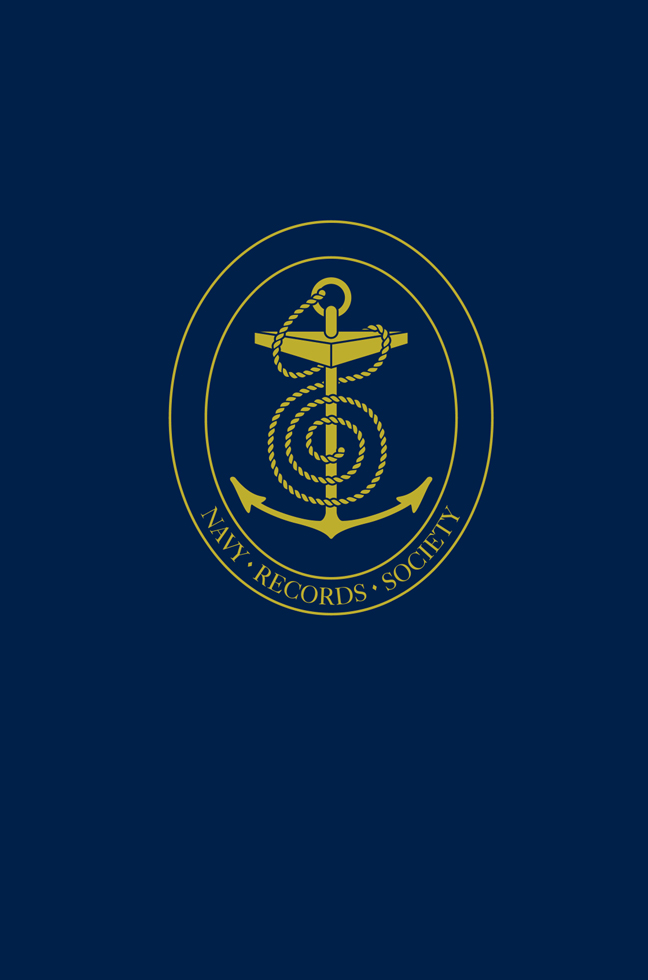Book contents
- Frontmatter
- Dedication
- Contents
- List of Plates
- Preface
- List of Abbreviations
- I The Provision of Ships for Edward I's Campaigns in Scotland, 1300–1306: Barges and Merchantmen
- II Lord Admiral Lisle and the Invasion of Scotland, 1544
- III The Journal of the Voyage of the Marigold to Iceland, 1654
- IV Neutrality, Sovereignty and Jurisdiction: Two Cases in the Admiralty Court, 1798–1805
- V The Supply of Timber for the Royal Navy, c.1803–c.1830
- VI The Journal of Lieutenant George Bedford, 1835–36: Surveying on the West Coast of Africa
- VII The Journal of Lieutenant Charles Knowles in the River Niger, 1864
- VIII The Diary of Signal Bosun Henry Eason: The Naval Brigade in the Zulu War, 1879
- IX The Autobiography of Chief Gunner Alexander Grant: HMS Lion at the Battle of Jutland, 1916
- X Australian Naval Defence: Selections from the Papers and Correspondence of Captain W. H. C. S. Thring, 1913–34
- XI The Relief of Admiral North from Gibraltar in 1940
- XII The Development of an Independent Navy for Australia: Correspondence between the First Naval Member and the First Sea Lord, 1947–59
- Contents of Previous Naval Miscellany Volumes
- Index
- Miscellaneous Endmatter
III - The Journal of the Voyage of the Marigold to Iceland, 1654
Published online by Cambridge University Press: 05 March 2024
- Frontmatter
- Dedication
- Contents
- List of Plates
- Preface
- List of Abbreviations
- I The Provision of Ships for Edward I's Campaigns in Scotland, 1300–1306: Barges and Merchantmen
- II Lord Admiral Lisle and the Invasion of Scotland, 1544
- III The Journal of the Voyage of the Marigold to Iceland, 1654
- IV Neutrality, Sovereignty and Jurisdiction: Two Cases in the Admiralty Court, 1798–1805
- V The Supply of Timber for the Royal Navy, c.1803–c.1830
- VI The Journal of Lieutenant George Bedford, 1835–36: Surveying on the West Coast of Africa
- VII The Journal of Lieutenant Charles Knowles in the River Niger, 1864
- VIII The Diary of Signal Bosun Henry Eason: The Naval Brigade in the Zulu War, 1879
- IX The Autobiography of Chief Gunner Alexander Grant: HMS Lion at the Battle of Jutland, 1916
- X Australian Naval Defence: Selections from the Papers and Correspondence of Captain W. H. C. S. Thring, 1913–34
- XI The Relief of Admiral North from Gibraltar in 1940
- XII The Development of an Independent Navy for Australia: Correspondence between the First Naval Member and the First Sea Lord, 1947–59
- Contents of Previous Naval Miscellany Volumes
- Index
- Miscellaneous Endmatter
Summary
On 21 April 1654 the day that Oliver Cromwell signed the articles of peace ending the First Dutch War, the Commonwealth Navy ship Marigold was ordered to convoy the English fishing fleet to Iceland. The Marigold's captain, Humphrey Felstead, was further instructed to keep a journal of his voyage and send it to the Admiralty Commission on his return. This was duly done, so that his journal now survives among the State Papers of the Commonwealth. The journal is significant both for being an early survival of its type and for being one of the best contemporary sources available on the activities of the English in Iceland during the early modern period.
Both the decision of the Admiralty to send a convoy to Iceland and the timing of its decision can be explained. While few today are even aware that the English fished off Iceland at this time, it was regarded by contemporaries as one of England's most important fisheries. Indeed, in the 1630s the cod and ling fisheries off Iceland had been described as the ‘greatest fishing of the kingdom’ which, ‘exceedeth the Newfoundland & herring fishing’. And while this might have been a slight exaggeration, it was not much of one; for the Iceland fishing fleet, which came mostly from Norfolk and Suffolk, could contain as many as 160 ships of between 50 and 150 tons burden. The early seventeenth century proved, however, to be the high-water mark of this industry. The Iceland venture was hit hard by the maritime lawlessness of the Civil War and interregnum, so that when the Marigold began her convoy on 16 May 1654, she was accompanied by just 19 vessels. The Admiralty Commission might therefore have felt, with some justification, that if the remnants of the fishing fleet was not protected, an industry would be extinguished that had played a vital role in training men to sea. Moreover, if those in London ever forgot about the fishery, they were regularly reminded of its significance by Major William Burton of Great Yarmouth, who, besides being an alderman of the town on which the Iceland fishery was centred, was also an important Naval administrator for the Protectorate.
- Type
- Chapter
- Information
- The Naval Miscellany , pp. 97 - 128Publisher: Boydell & BrewerFirst published in: 2024



